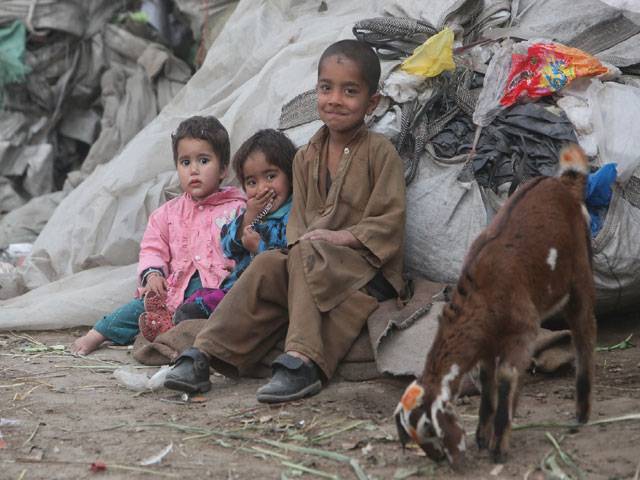Gul Zamir, 29, is a street cleaner and a legal Afghan refugee living at Old Ravi Bridge, where most of Lahore’s Afghan population resides. When approached by The Nation, he was desperately trying to make calls, seeking help for the release of his 21 year old brother who had been taken into police custody.
‘My brother was just coming home to Sanda when policemen approached him and detained him. He was carrying all of his documents,’ Zamir cried.
In Lahore, over half a dozen registered Afghans refugees have made a formal complaint to the United Nations High Commissioner for Refugees (UNHCR) over police mistreatment during an intensive combing operation that has paralysed life in Afghan communities following the February 13th suicide attack that killed 15 people in Lahore.
Members of settled Afghan communities, who call Pakistan their home and many of whom have lived here for decades, now live in constant fear of deportation. Following a spate of attacks last week claimed by Tehreek-e-Taliban Pakistan (TTP), and with news having re-surfaced about TTP sanctuaries in Afghanistan, the pressure on the state to get rid of its 3 million Afghan refugees has reached its crest. The resulting “search operation” has been criticised widely for being both inhumane and illegal.
Bibi Badami, whose son has been taken into police custody, said, “We are already going back to Afghanistan. But is this how you treat people with nothing in their hands?”
“We will eat onions and bread and we will leave like the others,” she continued. “But not with a good heart. Just a heavy one.”
Juma Gul, another member of the Saggian Bridge Afghan community, was worried about six of his family members, all of whom hail from Kunduz and have been settled in Lahore for decades.
“Shera Agha, Muhammad Hussain, Janam Khan, Bhi Khan, Hameedullah Khan... the police took all of them,” he said.
According to Gul, the police not only detained his registered family members but took away their POR cards and demanded money in the form of bribes. The Nation has not independently verified this information.
‘Pakistan opened its arms for us and we will never forget the hospitality. How can we be disloyal to Pakistan? It has given us shelter and a home. We are always ready to cooperate with the government,” Gul continued.
Hamid Latif, a field officer for the UNHCR is also an advocate and is responsible for taking up cases for legal Afghan refugees in Lahore.
‘I have been approached by six registered Afghan Refugees on judicial remand by the police. Reportedly, they have proof of reference (PORs) cards and should not be detained in any case,” he said.
Darkhobhi Bibi, the mother of another registered refugee in custody was in visible distress. ‘Our men have been treated so badly by the police without breaching any law,” she said. “We owe this country very much,” she wept.
The Afghans living at Saggian Bridge live in abject poverty. They have created their own community and culture while trying to integrate with the rest of the city. Most of them are garbage collectors, their blue-eyed children roaming barefoot and unfettered around heaps of Lahore’s discarded filth.
Largely, they come from the Afghan province of Kunduz and from Archi, Chahar Dara, Imam Sahib, Khan Abad and Qalay-i-Zal.
According to the Commissionerate for Afghan Refugees (CAR), there are 10,198 registered Afghans refugees living in Lahore.
“We have a peaceful community living here and we have never been involved in any illegal activity,” said Haji Mukhtiyar Khan, 80, one of the community tribal elders. “Pakistan welcomed us in when we were fleeing war. For me, it’s been 34 years. Can you imagine how much we owe this country?”






